ANA Advisory Board
We are grateful to our diverse and multidisciplinary Advisory Board, the members of which are recognised for their invaluable contributions to the fields of applied neuroscience, neuroscience, industry and allied fields.
Members
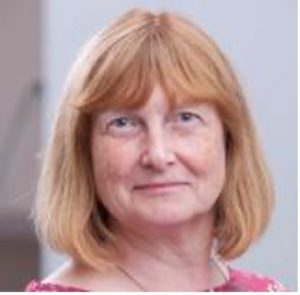
Dr. Brenda Williams
Dr. Williams gained her Ph.D. in neurobiology from University College London and honed her research skills through post-doctoral positions at Cancer Research UK, the National Institute for Medical Research, and the Dana Faber Cancer Institute. She worked as a principal investigator at University College London before moving to the Institute of Psychiatry, Psychology, and Neuroscience, at King’s College London.
In 2018 Dr. Williams moved onto the Academic Education pathway, to focus on education delivery, scholarship, and leadership and also become a Senior Fellow of the Higher Education Authority (Advance HE). She is now a Reader in Neuroscience Education and Deputy Head (Education) for the Basic and Clinical Neuroscience Department. In her current role, she works with colleagues and students to integrate and promote innovative neuroscience education.
Being a firm believer in diversity and inclusion, she has led the development of two successful distance learning MSc programmes, the Psychology and Neuroscience of Mental Health, and Applied Neuroscience. Dr. Williams is now programme lead for MSc Applied Neuroscience. She has a passion for encouraging interest and understanding of the Biosciences and does this as a member of the Royal Society of Biology London Branch Committee and through running the Basic and Clinical Neuroscience annual Work Experience week for A-level students. Key publications: https://www.kcl.ac.uk/people/brenda-williams
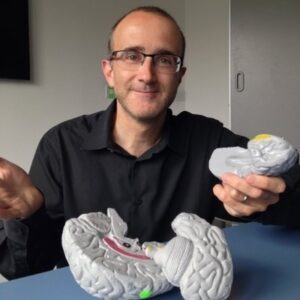
Dr. Vincent Giampietro
Dr. Giampietro reads Neuroscience and Digital Education at King’s College London (Computational Neuroscience and Analytics, Department of Neuroimaging, IoPPN and School of Neuroscience). He is Chair of Faculty Postgraduate & Online Assessment Boards and Neuroimaging Education Lead. Co-director of the King’s Institute of Psychology, Psychiatry and Neuroscience (IoPPN) and a Senior Lecturer in Neuroscience Education.
Dr Giampietro is a Doctor of Philosophy (PhD), Biometry /Biometrics and holds a PGCAPHE from King’s College London. He majored in Computer and Biomedical Engineering and studied Cognitive Sciences and Epistemology at the University of Technology of Compiegne. He holds a leading education role as Neuroimaging Education Lead, and Chair of Faculty Postgraduate & Online Assessment Boards and Technology Enhanced Learning Academic Lead. He is also the Creative Advisory Director of the Ideas Foundation.
His current research is investigating how the brain changes when you learn, modifying brain activity in real-time through functional magnetic resonance imaging (fMRI) neurofeedback, pondering how this could eventually become a novel Neurotherapy. He is also researching the brain characteristics of entrepreneurial thinking and how these evolve with experience and success; designing neuroscience evidenced-based entrepreneurial thinking education. Key publications: https://www.kcl.ac.uk/people/vincent-giampietro
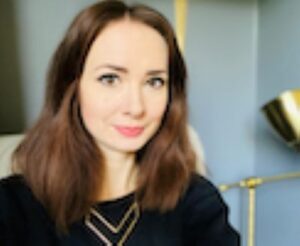
Dr. Anja Harrison
Dr Harrison completed a PhD in 2014 ‘Comorbid Depression in Multiple Sclerosis: Biobehavioural Approaches to Diagnosis and Treatment’. Her Post Doctoral Researcher role was in Psychology and Magnetic Resonance Imaging. She has worked as a Health Psychology Researcher since 2016, with a strong interest in neurosciences.
She currently works for King’s College London, where in her role as a Programme Lead, she focuses on teaching these disciplines and from March will be leading the IoPPN distance learning MSc programmes, Psychology and Neuroscience of Mental Health and Applied Neuroscience.
In addition to Dr Harrison’s work as a Lecturer and Programme Lead, she founded and runs The Collaborative Library (TCL). TCL believes everyone deserves access to the latest research findings, and that sharing this knowledge can lead to better lives for all. By creating a community-driven platform for lay summaries of research articles, TCL’s mission is to break down barriers to understanding and collaboration. The mission is to make science more engaging and accessible, where everyone can Learn, Connect and Contribute. Key publications: https://www.researchgate.net/profile/Anja-Harrison

Paweł Świeboda
Pawel is Founder and Director of NeuroCentury, a policy and ecosystem solutions hub for brain and mental health. He is also Practice Lead Neurotechnology at the International Centre for Future Generations, Member of the Steering Committee of the Brain Capital Alliance, Senior Advisor on Brain Health at FIPRA and Senior Visiting Fellow at the European Policy Centre. Previously, he hadmanaged one of the largest research programmes in brain science in the world, the Human Brain Project, and oversaw the building of
the state-of-the-art Research Infrastructure for the study of the brain – EBRAINS. In the years 2015-2020, he was Deputy Head and Head of Research of the European Political Strategy Centre at the European Commission, part of the institution’s Presidential Team. He had served on the European Commission’s Sounding Board on the EU’s Science, Research and Innovation Performance and the Global Agenda Council on Europe of the World Economic Forum. He is an advisor to European and global companies and policy organisations.
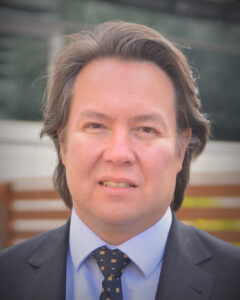
Dr. Bryan Strange
Bryan Strange completed the M.B.-Ph.D. programme at UCL in 2004, and became member of the Royal College of Physicians in 2007. His Ph.D., conducted at the Wellcome Department of Cognitive Neurology, Institute of Neurology, argued for a functional dissociation between anterior and posterior hippocampus in humans. He started his own laboratory in 2011, the Laboratory for Clinical Neuroscience, Universidad Politécnica de Madrid, Spain and in 2014 became director of the Department of Neuroimaging, Reina Sofia Foundation Centre for Alzheimer’s Research.
His laboratory employs a multi-modal approach combining functional brain imaging techniques with patient lesion data, pharmacology, and human intracranial recordings to study human medial temporal lobe functions. In 2018 he was awarded a European Research Council Consolidator grant to characterise human subcortico-cortical neuronal circuit dynamics associated with enhanced episodic memory for salient stimuli. In 2021, he led a successful application for an infrastructure grant from the Spanish science ministry to fund the acquisition of an optically-pumped magnetoencephalography (MEG) system. He currently leads the Neurotechnology Initiative at the Universidad Politécnica de Madrid, and is scientific director of the Spanish node of European Brain ReseArch INfrastructureS (EBRAINS)

Dr. Hedi Young
Hedi’s experience spans from producing documentaries for the BBC to diving deep into neuroscience, with a PhD focused on brain-cell connectivity. Currently at the Champalimaud Foundation, a leading biomedical research institute in Lisbon, he transforms complex scientific concepts into accessible content.
Through scientific articles, educational videos, and more, his goal is to make neuroscience relatable and understandable for all and to shed light on what is going on “under the hood”.
A published author in both neuroscience and cancer research, he has taken the stage as an invited speaker at international neuroscience conferences and challenged notions of self and free will, as expounded in his TEDx talk. Beyond academia, he has ventured into the tech space as the co-founder of Oligo, an award-winning platform for scientists and physicians, and also penned and directed critically acclaimed TV commercials. He holds an MSc in Cognitive Neuroscience from University College London and a BA in Biological Sciences from the University of Oxford.
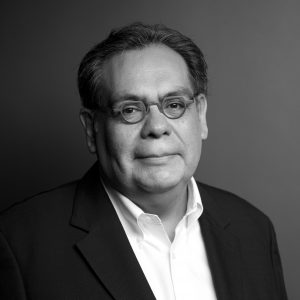
Dr. Juan Carlos López
Dr. Juan Carlos López is Managing Director, Research Grants, at the RTW Charitable Foundation. A native of Oaxaca, Mexico, Juan Carlos obtained his Ph.D. degree from Columbia University (New York) in the laboratory of Nobel Laureate Eric Kandel and carried out postdoctoral research at the Instituto Cajal (Madrid). In 2000, Juan Carlos moved to London to launch the journal Nature Reviews Neuroscience, subsequently becoming its Chief Editor.
Four years later, he returned to New York as Chief Editor of the prestigious journal Nature Medicine. In 2014, Juan Carlos joined Hoffmann-La Roche as Head of Academic Relations and Collaborations, leading a team in charge of fostering scientific interactions between the company and academic institutions worldwide. After leaving Roche, Juan Carlos founded Haystack Science, a consulting firm specialized in editorial services and science commercialization. In 2020, Juan Carlos returned to the pharmaceutical industry as Director of Academic Research Collaborations at Bristol Myers Squibb. Throughout his career, Juan Carlos has served on the Boards of multiple organizations in the non-profit and biotechnology sectors, most recently on the Board of Directors of Keystone Symposia.
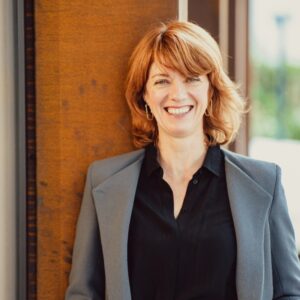
Charlotte Massey
A data intelligence expert formally trained in Data Analytics, with a background in Molecular Biology and International Marketing, I specialise in helping businesses articulate their problems and grow and have a particular interest in sustainable data management. This is at the heart of my role as a member of the ANA Advisory Board and Independent Director on the ANA Board.
Specialist in enriching audience understanding and making marketing communications dramatically more effective. Having spent some time working in Healthtech, I am a OneHealthTech fellow. This is a grassroots international organisation working to improve the diversity of thinking in this field. I’m also an active member of the Open Data Institute, and British Computing Society and have been a science tutor for the last 5 years for The Access Project, a charity working with children in schools over-indexing in the free school meals program to help them secure places at University.
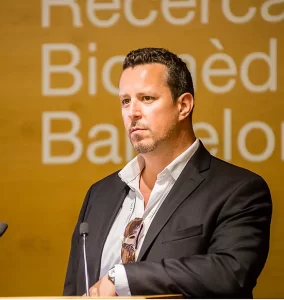
Christian Suojanen
Christian brings 25 years international and operational advisory experience in strategy, business development, and access to finance for technology transfer, start-ups, industry and investors in the biotech, digital health, medtech, healthtech, health and pharmaceutical sectors.
He has seen firsthand that world-class innovation can arise anywhere, and what is most often missing is the expertise and networks needed to ensure that the true potential of that innovation is realized.
Along with his day to day work with biotech companies, industry and funds, Christian has for two past two decades consistently supported innovation stakeholders in the bio, pharma and health sectors; delivering the first pan-European level biotech investment conference series (with EASDAQ, now Euronext), the first Biotech sector CEO academy at top MBA schools, advising EU level industry associations for biotech, pharma, and venture capital, and advising the EC and national governments, health systems and universities on innovation strategy, technology transfer and business creation. He has provided training and strategic engagement with finance and industry to over 3,000 innovation stakeholders, primarily representatives of start-ups and technology transfer, Licensing and innovation offices, across 5 continents.
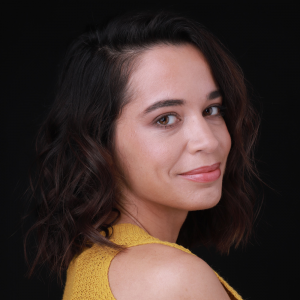
Anne-Laure Le Cunff
Anne-Laure Le Cunff is a researcher, entrepreneur, and writer. She investigates how different brains learn differently at the Institute of Psychiatry, Psychology & Neuroscience, and founded Ness Labs, an online school for knowledge workers to explore the applied neuroscience of learning, creativity, and decision-making. Her other interests include neurodiversity, psychedelics, metacognition, and consciousness research.
Previously, she worked at Google in the Digital Health team, promoting hardware and software to help people take better care of their physical and mental health. As an adviser to the Applied Neuroscience Association, she provides guidance on the subjects of science communication and community building.
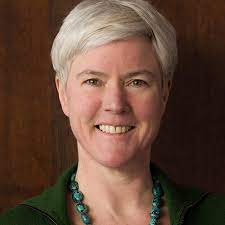
Dr. Caitlin Walker
Caitlin Walker is a Doctor of Philosophy, PhD at Liverpool John Moores University. Dr. Walker graduated in Linguistics at the School of Oriental and African Studies and did four years post graduate research in ‘Strategies for Lexical access’ including anthropological fieldwork in Ghana. She was doing a PhD in Artificial Intelligence when a NZ Psychologist, David Grove invited her to work alongside in creating a new linguistic discipline called ‘Clean Language’.
She has since developed her linguistic and non-verbal clean, agile and systemic modelling skills from small scale group development to whole scale organisational culture change programmes addressing diversity, conflict, leadership, managing mergers and creating learning organizations. She has systematically tested and developed her ideas in bringing systems thinking to challenging arenas in the Justice System and Education. Her robust ideas have become sought after in Academia and Industry. You can find her research profile here and her TED TALK here. Her current projects include working with at-risk teenagers excluded from the school system. Her work is available on the Open University MBA Programme.

David Hanson
David Hanson develops robots that are widely regarded as the world’s most human-like in appearance, in a lifelong quest to create true living, caring machines. To accomplish these goals, Hanson integrates figurative arts with cognitive science and robotics engineering, inventions novel skin materials, facial expression mechanisms, and collaborative developments in AI, within humanoid artworks like Sophia the robot, which can engage people in naturalistic face-to-face conversations and currently serve in AI research, education, therapy, and other uses.
Hanson worked as a Walt Disney Imagineer, both a sculptor and a technical consultant in robotics, and later founded Hanson Robotics. As a researcher, Hanson published dozens of papers in materials science, artificial intelligence, cognitive science, and robotics journals — including SPIE, IEEE, the International Journal of Cognitive Science, IROS, AAAI, AI magazine and more. He wrote two books including “Humanizing Robots” and received several patents. Hanson was featured in the New York Times, Popular Science, Scientific American, WIRED, BBC and CNN. He also received earned awards from NASA, NSF, Tech Titans’ Innovator of the Year, RISD, Cooper Hewitt Design Triennial, and the co-received the 2005 AAAI first place prize for open interaction of an AI system. Hanson holds a Ph.D. in Interactive Arts and Technology from the University of Texas at Dallas, and a BFA in film Animation video from the Rhode Island School of Design.

